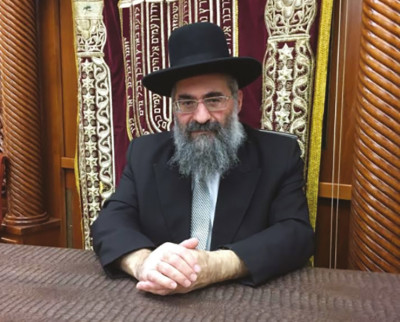
Why do we place a mezuzah on our doorposts? Some may feel that the mezuzah is hung on our doorposts as a protection. For this reason, many secular Jews also affix a Iin the hope of obtaining a measure of security from Hashem. The Rambam debunks this theory, explaining that the Torah commands us to place a mezuzah by the doors of their house as a reminder of Hashem’s existence whenever entering or departing a passageway. The name of Hashem is included within as a reminder He is the sole Creator, loves each of us, and is only one. The mezuzah acts as an alarm to wake us up to love Hashem and that he loves us back.
In our materialistic world, we are busy running about and we tend to forget the truth and our real mission in this world. Nothing in this world stays forever aside from the knowledge of our Master and His Torah. If one has angels acting as a protection, they are content. However, remembering Hashem is also a protection.
The story is told of the sage who managed to convert the Roman Caesar, first by converting one group of soldiers that sought to bring him back, and then another. The soldiers believed that they were converted based on the truth of Judaism. It was explained that when a soldier walks alongside their general, they must hold up the flashlight for their superior, so too a servant holds a flashlight for their king. But, for us it is Hashem who holds the flashlight and guides us, specifically during the time of the Midbar, Hashem was our guide. Now the Caesar sent a third group with an order not to converse with the man because he would convert them. So, they finally go and get the man, but he raises his hand and touches the mezuzah. Let’s ponder, is a king protected by servants who relax inside the gates of his palace, or do they take a position outside the palace gates? For us, Hashem sits with us providing protection, unlike a king’s soldiers who stand guard outside. The mezuzah by our doors is like Hashem who watches after us, takes care of us and protects us. The third group also converted, completing the transition of the Caesar’s entire army. We learn that mezuzah is a measure of protection.
The Zohar writes that there is a person who seeks to cause damage for others. The person looks with an evil eye. When you open a door and peer inside, whatever they rest their eyes upon becomes damaged, but with a mezuzah the damager becomes scared and again the mezuzah is a protection. When we pass a doorway and see the mezuzah, you awake and understand that Hashem loves you, cares about you, and protects you. It’s a two-way relationship that is not automatic by placing a mere piece of parchment on your door that gives protection. It is a reminder that Hashem exists, and in turn you are awarded this special shmirah.
Our Protector
Typography
- Smaller Small Medium Big Bigger
- Default Helvetica Segoe Georgia Times
- Reading Mode











